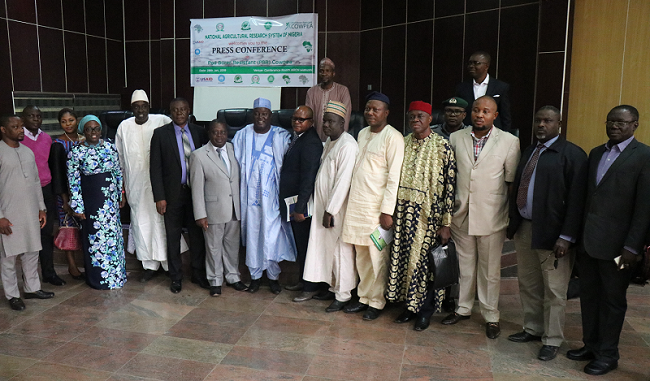The Federal Government of Nigeria has approved for environmental release the Pod Borer Resistant Cowpea (popularly called beans) developed by the Institute for Agricultural Research (IAR), Ahmadu Bello University, Zaria.

The approval was contained in a decision document issued by the National Biosafety Management Agency (NBMA) granting permit for the environmental release of the PBR Cowpea which has been genetically modified to resist the insect pest – Maruca Vitrata.
The approval means the crop is safe and posed no harm to human and the environment and can now be submitted to the National Variety Release Committee for consideration and registration as a commercial crop in Nigeria.
The PBR Cowpea, by this development, becomes the first genetically modified (GM) food crop to be approved in the country.
IAR in partnership with the African Agricultural Technology Foundation (AATF) commenced the research to address the deadly Maruca Vitrata attacks on beans in 2009 after series of efforts to use conventional breeding methods failed to produce results.
After 10 years of extensive research, government has deemed it fit to introduce the crop variety into the nation’s agricultural seed system having met all regulatory stipulations and scientific procedures.
The introduction will address the national cowpea demand deficit of about 500,000 tonnes and also improve the national productivity average of 350kg/hectare.
At a public display of the approval on Monday, January 28, 2019 in Abuja, the coordinating agency for agricultural research in Nigeria, the Agricultural Research Council of Nigeria (ARCN), said that after many years of research the council was proud to present to Nigerians the first home-grown genetically modified food crop which, according to him, has passed all necessary scientific tests and posed no danger to human health or the environment.
“As the coordinating agency for the over 15 agricultural research institutes in Nigeria, we have identified modern biotechnology as one scientific tool whose potentials can help improve crop and animal production and we have done this with all sense of responsibility, bearing in mind both national and international protocols that guide the deployment of genetic modification,” the Executive Secretary of the ARCN said.
The Executive Director of IAR, Prof. I. U. Abubakar, in a presentation summarising the process that lead to the development of the PBR cowpea, said the decision to venture into genetic modification in cowpea breeding was as a result of pest infestation that has over the years made cowpea farming difficult as farmers get less for their efforts and even have their lives exposed to danger due to chemical spraying to keep the pest away.
“Cowpea is the most important food grain legume in Nigeria. The low yield of the crop in Nigeria is due to many constraints particularly pod boring insects which cause up to 90% yield loss in severe infestation cases.”
Dr Abdourhamane Issoufou, AATF Country Director, said since the mid 1980s, cowpea scientists have declared maruca as the main limiting factor of cowpea production in Africa hence the intervention of the AATF based on its principles of providing access to appropriate technologies by small scale farmers.
“AATF was able to obtain access to the Cry1Ab gene used for this modification on humanitarian basis and worked with institutions in Nigeria, Ghana, Burkina Faso and Malawi for the transformation. Today, Nigeria stands tall in the comity of nations for effectively managing and bringing to fruition this dream.
“The research results have shown that the PBR-cowpea is safe for human and animals, completely resistant to Maruca; leads to yield increase of 20% with fewer sprays of chemical insecticides,” he noted.
Prof. Alex Akpa, Acting Director General, National Biotechnology Development Agency (NABDA), said that by the approval, Nigeria has registered her name among the global scientific community as a country capable of finding solutions to her challenges. “After 10 years of laboratory works and on-field trials, Nigerian scientists have developed its first genetically modified food crop, the PBR Cowpea, we are proud to be associated with this noble development,” Akpa said.
